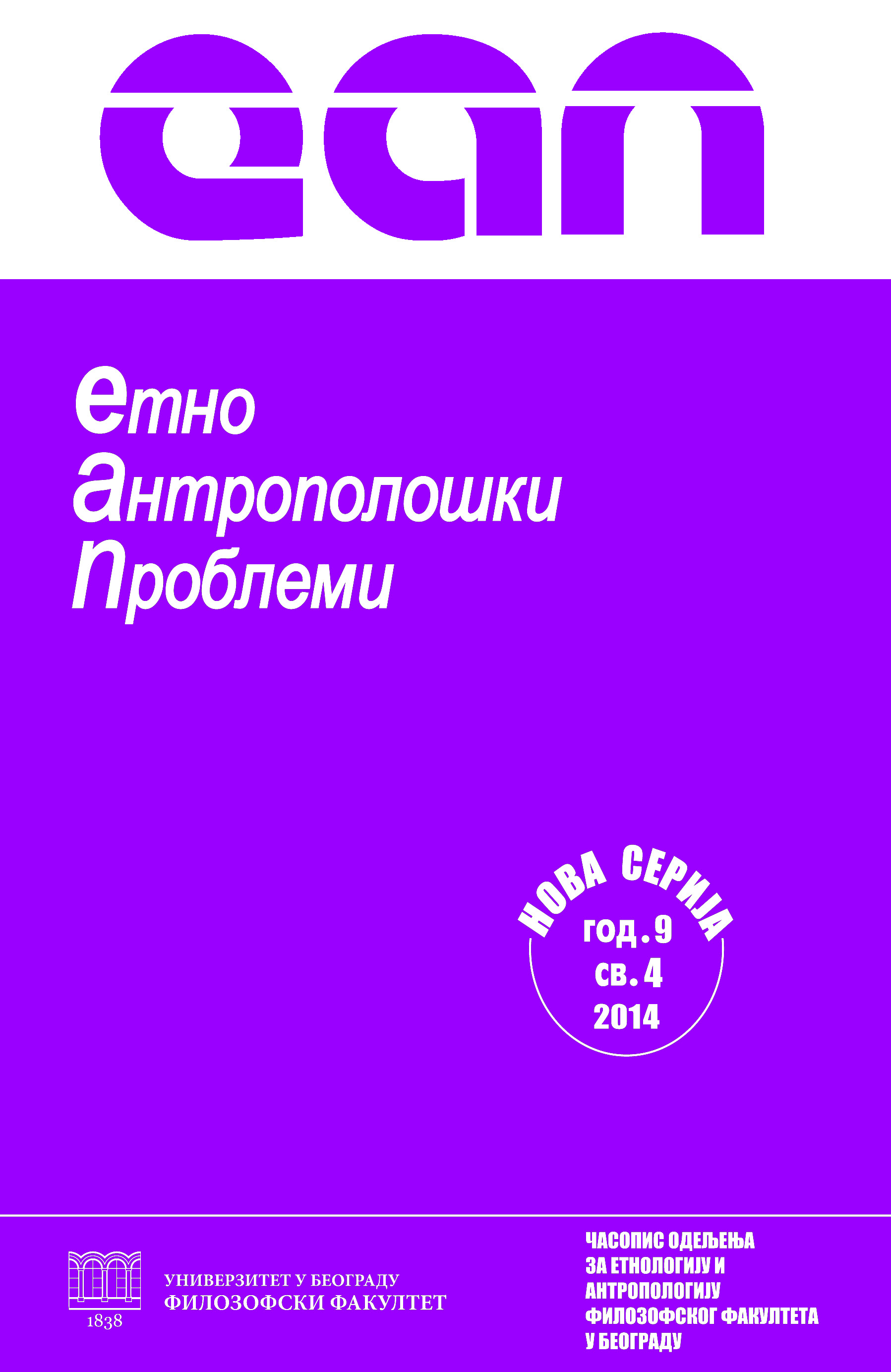Empathy as a strategy of bridging the gap between politicians and the people of Serbia
DOI:
https://doi.org/10.21301/EAP.v9i4.8Keywords:
empathy, instrumentalizing emotions, politicians, citizens, SerbiaAbstract
This paper strives to emphasize one of the roles of emotion in the political activities of political actors. In the last few years, the viewing of politicians as Others by the citizens of Serbia is becoming more and more apparent. Politics itself is viewed through the actions of politicians, which are accompanied by a more and more passive attitude towards politics in general. The paper considers empathy as one of the strategies of overcoming the lack of confidence that citizens have toward domestic politicians, or rather the attempted closeness of politicians and the citizenry and the emotional binding of (certain) politicians to the voters. Empathy is approached as the emotional ability of a person to empathize with another person or group, wherein it is considered not as an emotion but as a capability which leads to certain experiences which we call emotions. Certain politicians demonstrate it, as a strategy of displaying good will, through their public speeches and culturally standardized behavior which is, further, considered as political communication directed towards the public. Aside from the speech and behavior of politicians, the paper analyzes the reactions of the citizens to it in the form of internet comments. As this paper is part of a wider study on the use of emotions, the aim is to use this example to point out that emotions can not only be but are an important aspect of political communication and politics as such.
Downloads
References
Братић, Добрила. 1985. Поновно сахрањивање убијеног ванбрачног дјетета – ритуална контрола културе над природом. Етнолошке свеске VI: 41-46.
Davis, Mark. 2006. “Empathy”. In Handbook of the Sociology of Emotions, eds. Jan E. Stets and Jonathan H. Turner, 443-466. New York: Springer.
Ekman, Pol. 2011. Razotkrivene emocije. Beograd: Zavod za udžbenike.
Gergen, Kenneth. 1997. Realities and Relationships: Soundings in Social Construction. Cambridge: Harvard University Press.
Grelan, Hans. 2007. Filozofija osećanja. Beograd: Geopoetika.
Hejvud, Endru. 2004. Politika. Beograd: Clio.
Ilić, Vladimira. 2012. Fim kao izvor znanja: primer proizvodnje straha od terorista u filmovima Opsada i Predaja. Antropologija 12 (3): 115-134.
Lindholm, Charles. 2007. “An Anthropology of Emotion“. In A Companion to Psychological Anthropology. Modernity and Psychocultural Change, eds. Conerly Casey and Robert B. Edgerton, 30-47. Oxford: Blackwell Publishing.
Lutz, Catherine and Geoffrey M. White. 1986. The Anthropology of emotions. Annual Review of Anthropology 15: 405-436.
Lutz, Catherine. 1986. Emotion, thought, and estrangement: Emotion as a cultural category. Cultural anthropology 1(3): 287-309.
Outli, Kit. 2005. Emocije: kratka istorija. Beograd: Clio.
Slavujević, Zoran. 2010. „Institucije političkog sistema – umesto simboličkog izraza prava građana da vladaju, sredstvo vladavine nad građanima”. U: Kako građani Srbije vide tranziciju: istraživanje javnog mnjenja tranzicije, ur. Srećko Mihailović i drugi, 59-86. Beograd: Friedrich Ebert Stiftung.
Solomon, C. Robert. 2003. Not Passion’s Slave: Emotions and Choice, ed. Robert C. Solomon, 76-91. New York: Oxford University Press.
Spasić, Ivana. 2011. „Političari kao apsolutni drugi: kako građani Srbije opisuju profesionalne političke delatnike“. U: Ustav i demokratija u procesu transformacije: zbornik radova sa međunarodne naučne konferencije "Država i demokratija u procesu evropeizacije Srbije" (Beograd, 27-29. maj 2011. godine), ur. Milan Podunavac, 181-193. Beograd: Fakultet političkih nauka: Udruženje za političke nauke Srbije.
Stojiljković, Zoran. 2011. „Politički kapital i kultura (ne)poverenja: slučaj Srbija“. U: Ustav i demokratija u procesu transformacije: zbornik radova sa međunarodne naučne konferencije "Država i demokratija u procesu evropeizacije Srbije" (Beograd, 27-29. maj 2011. godine), ur. Milan Podunavac, 161-180. Beograd: Fakultet političkih nauka: Udruženje za političke nauke Srbije.
Triling, Lajonel. 1990. Iskrenost i autentičnost. Beograd: Nolit.
Turner, Jonathan and Jan Stets. 2006. “Moral Emotions“. In Handbook of the Sociology of Emotions, eds. Jan E. Stets and Jonathan H. Turner, 544-566. New York: Springer.
Жикић, Бојан. 2010. Aнтрополошко проучавање популарне културе. Etnoantropološki problemi 2 (5): 17-39.
Downloads
Published
How to Cite
Issue
Section
License

This work is licensed under a Creative Commons Attribution-ShareAlike 4.0 International License.










